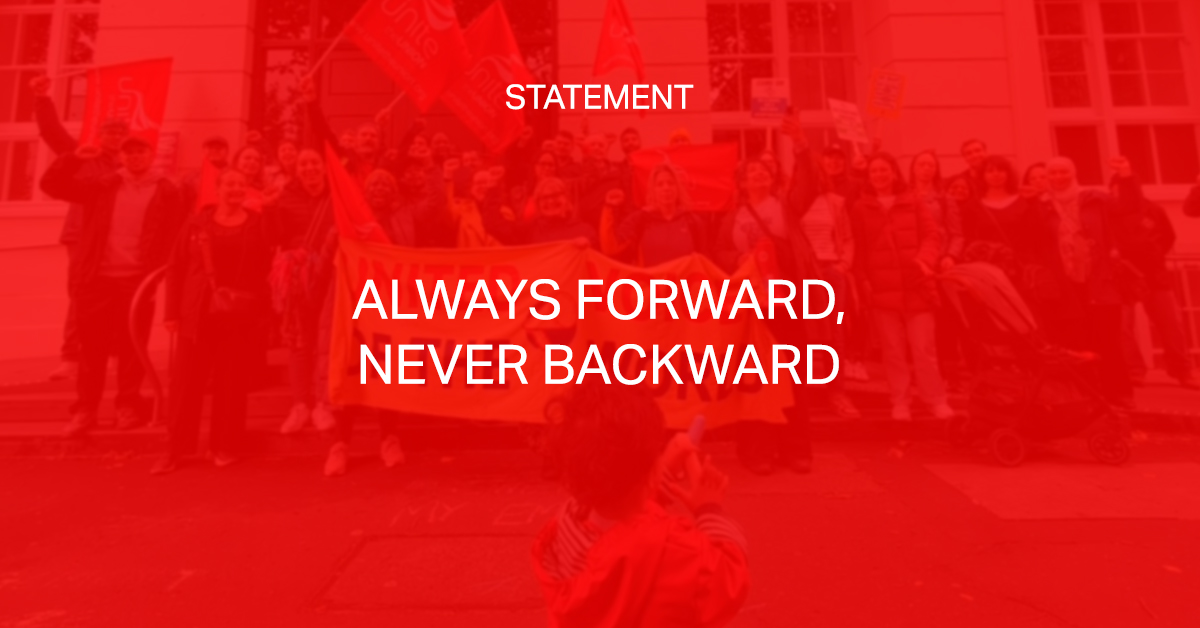Following the first-ever strike by ITF staff in the history of the organisation, we have held constructive negotiations with ITF management to reach a resolution on outstanding issues arising from the restructuring process.
In seeking to move forward, there are important lessons that we believe can be drawn from this tumultuous experience:
1. Meaningfully engaging with staff from the start
Unlike other global unions facing financial challenges, ITF management went to its board first to secure a mandate for cuts before holding serious conversations with staff representatives.
After denying staff the opportunity to engage with the Financial Sustainability Group (FSG), putting forward a non-negotiable 25% cut in 2025 put us on a collision course from the beginning.
A poorly-planned consultation process is not a substitute for genuine staff involvement in helping to shape the future direction of the organisation.
2. Prioritising equality as a core value
We can only succeed as an organisation if we practice the values that we preach. We must confront the reality that there are long-standing issues around equality in our workplace.
We are a less equal organisation as a result of the cuts: 80% of the the more than 40 leavers from the bargaining unit are women.
Similarly, as it now stands 80% of the 15 current or past union representatives in scope of the change process are not part of the new structure.
Serious concerns remain around gaps in the application of legal safeguards for new parents.
Staff in the Asia Pacific restructure had less access to consultation and protections than their London colleagues, while other colleagues were excluded from the process entirely due to the type of their contracts.
For all these reasons the existing Collective Bargaining Agreement (CBA) and principle of collective negotiation over changes to terms and conditions of employment remain essential for protecting the rights of ITF staff.
An evaluation of the use of non-standard forms of employment and unequal treatment towards affected staff is also important if we are to uphold ITF principles going forward.
3. Strengthening financial controls and disclosure
It is hard to accept such an abrupt reduction in the headcount of permanent staff following a period of seemingly unrestrained spending on external consultancy firms.
We believe that much more needs to be done to rein-in discretionary spending in areas such as business-class travel, entertaining, expense claims, and corporate consultancy fees to ensure the organisation is financially sustainable.
4. Ensuring we have a viable strategy to deliver our goals
We have an ambitious workplan to implement over the next four years, however we now have significantly less capacity.
We have lost staff in critical areas where the ITF invested significant time and money to distinguish itself. Important activities, which affiliates depend on, are already being cancelled or adversely impacted.
Although the downsizing process is nearly complete, the strategic conversation on how we achieve our six demands has been absent. We want to ensure the objectives endorsed by Congress are reflected in our financial forecasts and operational plans.
Significant work intensification and staff burnout may result where cuts have been most severe and vacant positions go unfilled.
New technologies like AI can be explored but there must be negotiation with staff over their use and longer-term implications.
5. Deepening the role of affiliates in governance
We hope that this experience can serve a greater purpose. We as staff can raise concerns, however ultimately it is for ITF affiliates to decide what kind of organisation they want to steward.
We would like to work at a union federation where affiliates are confident that we are moving forward on the right track and are prepared to take a more active role where you feel we can do better.

Leave a Reply